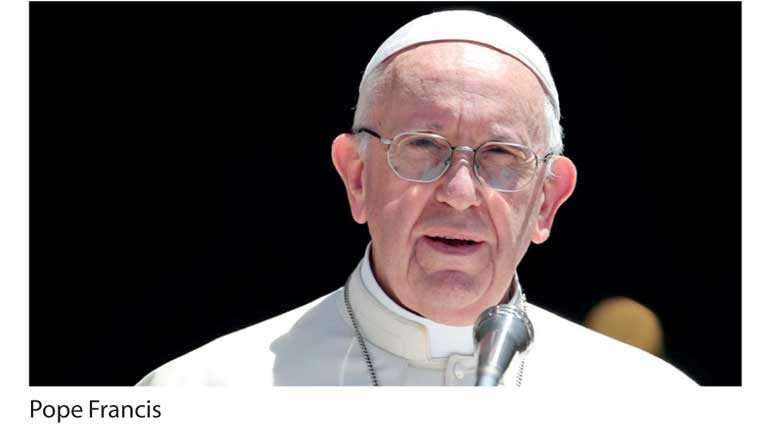Friday Feb 20, 2026
Friday Feb 20, 2026
Friday, 3 August 2018 00:00 - - {{hitsCtrl.values.hits}}
 VATICAN CITY (Reuters): The Roman Catholic Church formally changed its teaching on Thursday to declare the death penalty inadmissible whatever the circumstance, a move likely to be criticised in countries where capital punishment is legal.
VATICAN CITY (Reuters): The Roman Catholic Church formally changed its teaching on Thursday to declare the death penalty inadmissible whatever the circumstance, a move likely to be criticised in countries where capital punishment is legal.
The 1.2 billion-member Catholic Church had for centuries allowed the death penalty in extreme cases, but the position began to change under Pope John Paul II, who died in 2005.
The Vatican said the change to its universal catechism, a summary of Church teaching, reflected Pope Francis’ total opposition to capital punishment.
According to the new entry in the catechism: “the death penalty is inadmissible because it is an attack on the inviolability and dignity of the person.” The Church was working “with determination” for the abolition of the death penalty worldwide, the new teaching says.
The new provision is likely to run into stiff opposition from conservative Catholics in the United States and other countries where capital punishment is legal and many believers support it.
Last year, 53 countries issued death sentences and 23 of them executed at least 993 people, according to Amnesty International, with most executions in China, Iran, Saudi Arabia, Iraq and Pakistan.
In the United States, 23 people were executed, a slight increase from 2016 but a low number compared to historical trends, Amnesty said, adding that it was the only country in the Americas that carried out executions.
Capital punishment is banned in most of Europe, with Belarus the only European country that carried out executions last year, Amnesty said. By the end of last year, 106 countries worldwide had banned the death penalty.
Recourse to the death penalty, following a fair trial, had long been “an appropriate response to the gravity of certain crimes and an acceptable, albeit extreme, means of safeguarding the common good,” the new catechism says.
“Today, however, there is an increasing awareness that the dignity of the person is not lost even after the commission of very serious crimes,” it says, adding: “more effective systems of detention have been developed, which ensure the due protection of citizens but, at the same time, do not definitively deprive the guilty of the possibility of redemption.”
In a letter to bishops, Cardinal Luis Ladaria, the head of the Congregation for the Doctrine of the Faith which enacted the change, said it was aimed at encouraging “the creation of conditions that allow for the elimination of the death penalty where it is still in effect”.